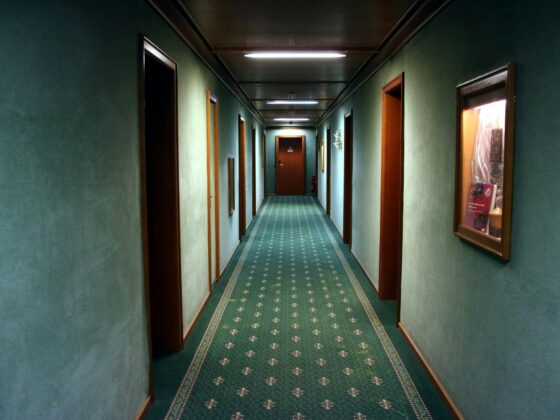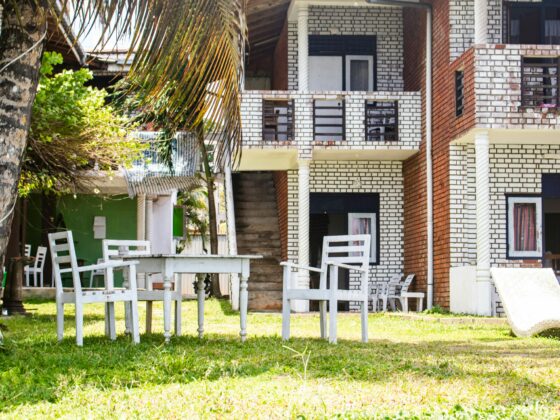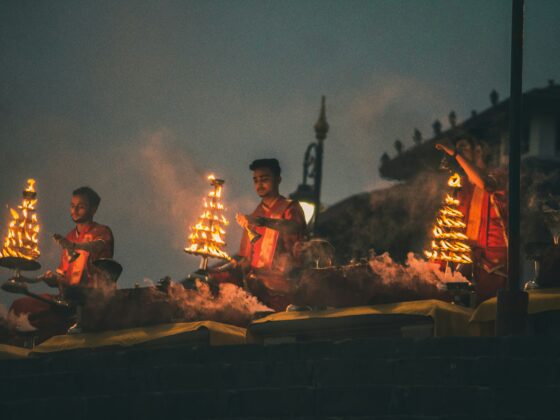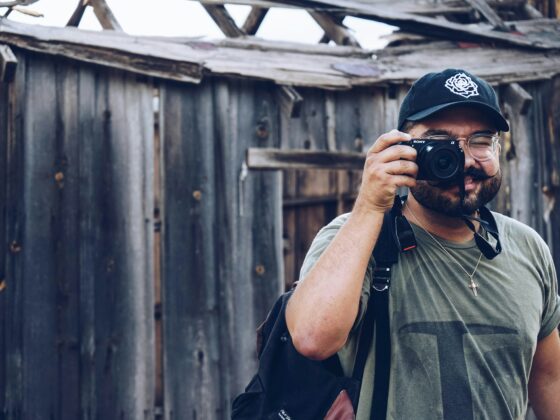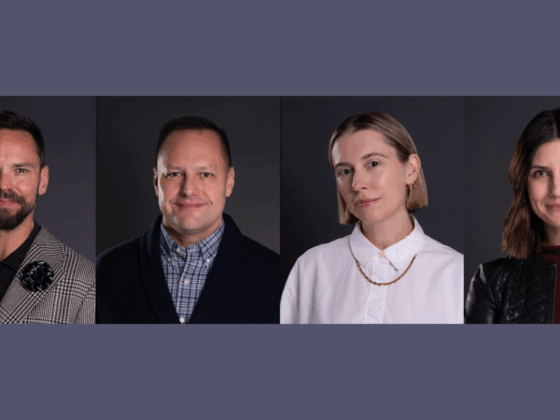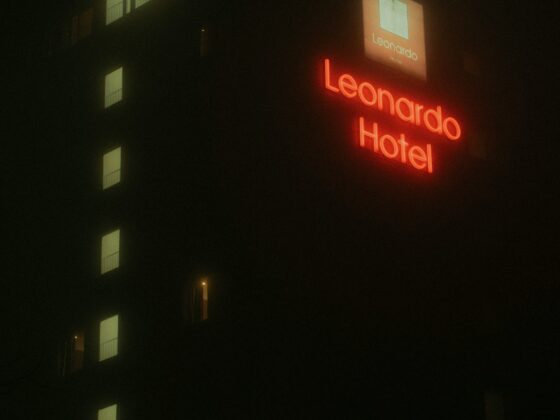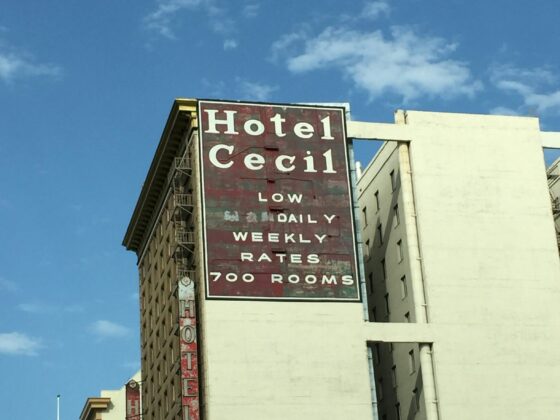An interview with Luca Tucciarone, Director of Terme di Vulci Glamping & Spa and NOBA Hotels and Residences.
R: To begin, could you tell us a little bit about yourself and your career path to becoming the Director of Terme di Vulci Glamping & Spa and, very recently, of NOBA Hotels and Residences?
L: I began my journey at the Professional Hotel Institute in Rome, driven by my passion for luxury hotels and attracted by the elegant environment and international clientele. When I was 15, I did an internship at the Saint Regis that solidified my enthusiasm for the industry.
After working in the Food and Beverage department in Rome, I decided to move to London, where I studied English and continued to work in the industry. Upon returning to Rome, I gained new experience as part of the reception staff, slowly progressing into roles with more responsibility, such as head of reception and assistant.
My first directorship was at an Accor hotel in Genoa, a meaningful experience that led me to work in several Italian cities, including Florence, Milan, Rovereto, and Varese. Arriving at Fresia Hotels Resort, I took on the challenge of managing Terme di Vulci, turning an embryonic project into a successful reality. Today, at NOBA, I manage an urban facility that requires different but equally challenging strategies.
R: Terme di Vulci Glamping & Spa has become a benchmark in the glamping industry. Could you share your thoughts on this? What do you think are the unique aspects of your facility that have contributed to your success? Do you have a “Green” project, so to speak, for Glamping and spa? Could you tell us about how you have integrated sustainable practices within NOBA?
L: Our glamping facility is the only one in Italy that perfectly combines the concepts of “glamour” and “camping.” This innovative idea was born from the property’s vision. After a long period of analysis and study, we found creative solutions to overcome the area’s building limitations by opting for the installation of tents.
Our tents are tastefully furnished and equipped with all the amenities: private bathroom, restaurant, spa, whirlpool, sauna, and steam room, offering a truly unique experience. Unlike other glamping, our experience also includes the presence of tubs with thermal waters, making us unique in the Italian scene. In addition to this, our restaurant serves local products and we offer activities immersed in nature, such as horseback riding and walks in the Maremma. The proximity to the Vulci Archaeological Park, which is rich in history, adds further appeal to our offerings.

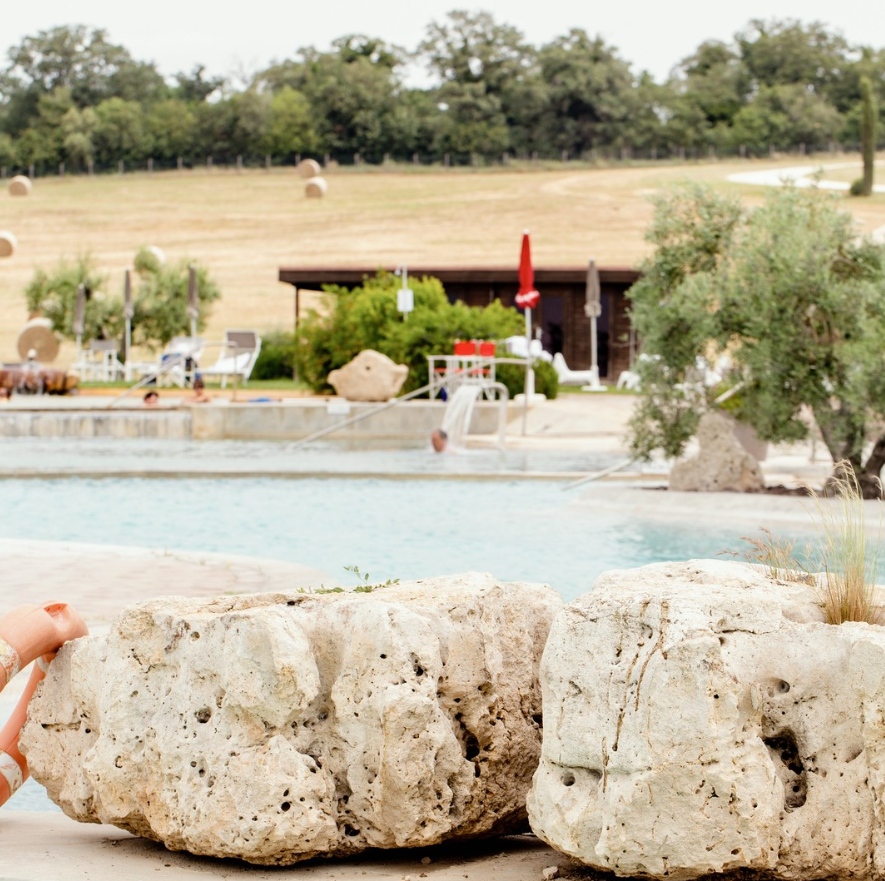
In terms of sustainability, we have adopted a plastic-free policy, using alternative materials to plastic, such as solar panels and wood. At NOBA, we are also implementing green solutions, reducing the use of paper and plastic, and installing solar panels despite the challenges of the urban environment. Sustainability is something our customers increasingly value, and we are constantly striving to improve in this area.
R: Do you think the COVID effect has accelerated the spread of the glamping concept, or has it, on the contrary, been a deterrent?
L: I think the COVID factor has definitely contributed to the emergence of these facilities. When we opened glamping in June 2020, the tents were already all booked.
Glamping is conceived as a unique experience, different from the “classic” hotel. It offers the possibility of open-air activities and a close connection with nature. Clients choose to sleep in a tent in the countryside to listen to the sounds and noises of nature, and, in short, a true experiential stay.
Our Food and Beverage department also plays an important role. Our spa offers local products from a company in Lake Bolsena. We are trying to offer clients an authentic experience.
R: Turning to the topic of online reputation, how much does it matter to you? How important is it to analyze and respond to your guests’ reviews?
L: In the context of the relevance of online reputation for a hotel facility, where reviews are now read by most customers and influence their future bookings, I think TrustYou is a very comprehensive and easy-to-use tool.
The platform provides us with a lot of useful information, among which customer sentiment definitely stands out, and helps us improve the performance of our departments more and more every day. At the company level, each facility has its own identity and organization independent of the others. This tool supports us in comparing performance and allows us to draw growth-oriented insights, as well as monitor and understand the performance of competitors.
In addition, regarding the management of reviews, especially negative ones, they are now analyzed under a different lens than in the past and represent a tangible opportunity for discussion and improvement.
Recently, we faced a critical issue reported by a customer that turned out to be well-founded, which prompted us to take immediate action. These reviews then provide us with an opportunity to correct any problems before they reoccur. We also have an internal policy of responding to all negative reviews, so we try to maintain an open and constructive dialogue with our customers.
R: What are your professional future plans, especially considering your new role as Director of NOBA Hotels and Residences?
L: The move to Rome has certainly allowed me to work closely with the leadership team and central offices.
In particular, we are focusing our efforts on infrastructural and organizational improvements, such as implementing new agreements for supplies and services. We are also working to improve the facility’s online image and reputation. We have already updated the photos on our online channels and are implementing marketing strategies to increase visibility and attractiveness to customers.
I would also like to replicate some elements from my experience in the glamping industry in NOBA, especially ensuring that the team is motivated and slowly becomes autonomous in managing the property. Indeed, I firmly believe that staff is the key to success in the hospitality industry. In the long term, I would like to be involved more and more in the back office and general coordination of facilities.
R: Considering the latest trends in hospitality, such as the increasing presence of artificial intelligence and the focus on sustainability, what do you envision for the next years? What challenges and opportunities do you foresee for facilities like yours in this context?
L: I am convinced that hospitality will continue to evolve. Maintaining a human-centric approach and service quality will always be challenging. I think artificial intelligence can be very useful in back-office areas for data analysis and operational improvements, however, hospitality remains a human interaction-based industry: technology clearly needs to be used carefully so as not to compromise service quality.
On the topic of emerging trends in the industry, I find that unique and authentic experiences continue to gain popularity and are indeed increasingly important to differentiate oneself in the market. Ancillary services, such as horseback riding or luxury picnics, are becoming increasingly valuable in enriching the customer experience. They represent a way to get away from the urban routine and reconnect with nature, which many guests appreciate.
An Interview by RES – Hospitality Business Developers


